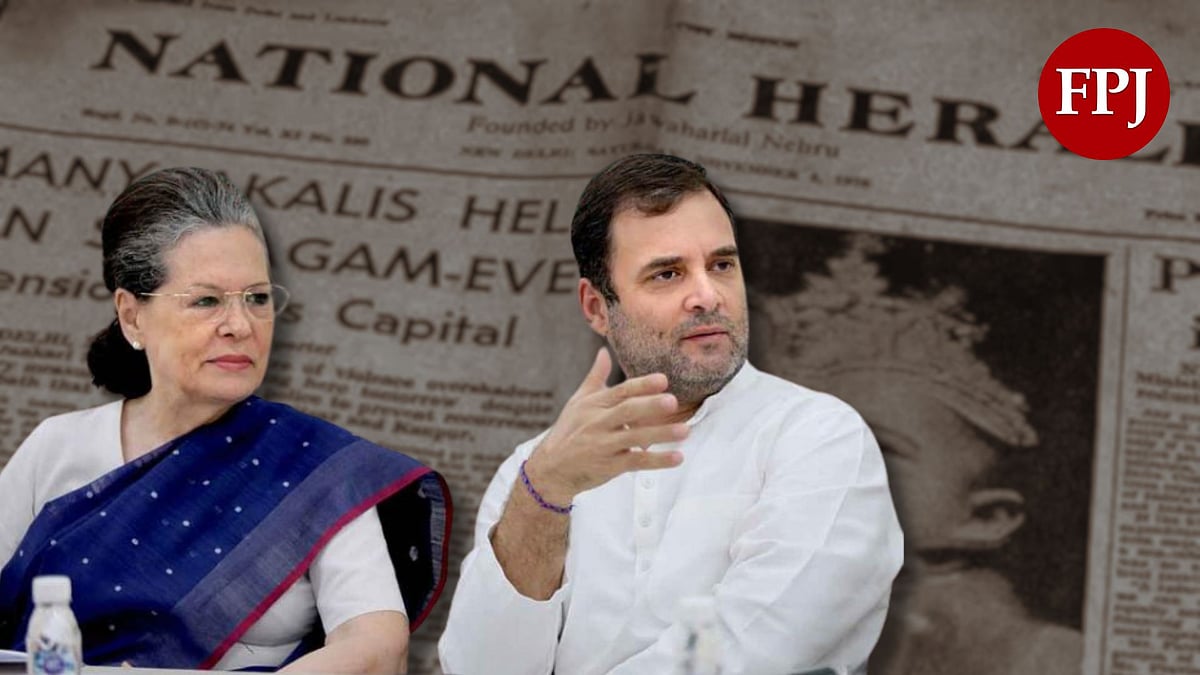Explained: ED Files Chargesheet Against Gandhis; Here’s All You Need To Know About National Herald Case | (Photo Courtesy: ANI/Altered by FPJ)
New Delhi: In a major turn of events, the Enforcement Directorate (ED) filed a chargesheet against Congress leaders Sonia Gandhi, Rahul Gandhi, and several others in connection with the National Herald case. Filed on April 9 under the Prevention of Money Laundering Act (PMLA), the chargesheet was heard by Special Judge Vishal Gogne, who has listed the next hearing for April 25.
Sonia Gandhi has been termed as Accused No 1, and her son Rahul Gandhi as Accused No 2 in the prosecution complaint. Others named in the chargesheet include Congress veterans Suman Dubey and Sam Pitroda, the companies Young Indian Pvt Ltd and Dotex Merchandise Pvt Ltd, and Sunil Bhandari of Dotex.
The ED has invoked Sections 44, 45, and 70 of the PMLA, seeking punishment of imprisonment for a term of up to seven years under Section 4. The agency alleged that these individuals were involved in money laundering linked to financial anomalies during the acquisition of Associated Journals Ltd (AJL) by Young Indian.
What is the National Herald Case?
The National Herald case stems from a complaint filed in 2012 by BJP leader Subramanian Swamy. He alleged that Congress leaders were involved in cheating and breach of trust during the acquisition of AJL, the company that published the now-defunct National Herald newspaper. Swamy claims that Young Indian Pvt Ltd, a firm set up in 2010 with Sonia and Rahul Gandhi as majority shareholders, was used to “maliciously” take over AJL’s assets worth over Rs 2,000 crore by paying just Rs 50 lakh.
AJL, founded in 1937 by Jawaharlal Nehru and other freedom fighters, originally operated the National Herald in English, Navjeevan in Hindi, and Qaumi Awaz in Urdu. These publications ceased operations in 2008 with over Rs 90 crore in debt. In 2011, AJL’s holdings were transferred to Young Indian, raising concerns among original shareholders who claim they weren’t consulted or notified about the transaction.
A Timeline of the Case
The Congress party maintains that the transaction was legitimate and meant for charitable purposes, not personal gain. It also insists that no party funds were misused. However, the ED began investigating the matter in 2014 and reopened the case in 2015 to examine potential money laundering.
Rahul and Sonia Gandhi were granted bail in 2015, while in 2016, the Supreme Court declined to quash proceedings but exempted the accused from personal appearances. In 2018, the Centre moved to evict AJL from the Herald House in Delhi, claiming misuse of the property. The Supreme Court stayed the eviction in 2019.
As the legal battle continues, with 2025 seeing the ED formally pressing charges, the case remains a political flashpoint. Congress has dismissed the allegations as politically motivated, while the matter now heads into a new phase of judicial scrutiny.
